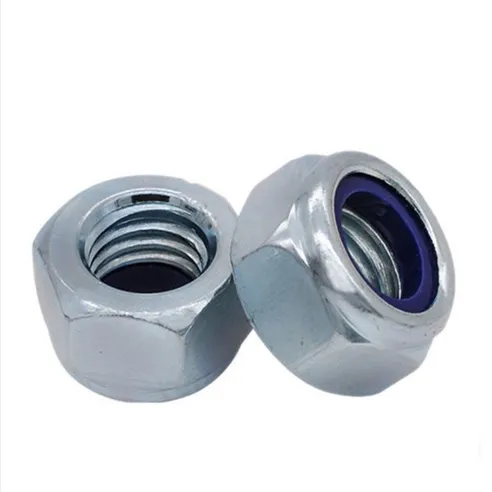Premium Plain Washers Durable & Custom Solutions [Brand]
May . 07, 2025 17:41 Back to list
Premium Plain Washers Durable & Custom Solutions [Brand]
- Understanding the Industrial Significance of Plain Washers
- Key Technical Advantages of High-Performance Plain Washers
- Comparative Analysis of Top Plain Washer Manufacturers
- Customization Options for Diverse Industrial Needs
- Case Studies: Applications Across Major Industries
- Quality Assurance Standards in Washer Production
- Future Trends in Plain Washer Manufacturing

(plain washer)
The Essential Role of Plain Washers in Industrial Applications
Plain washers, though simple in design, serve as critical components in mechanical assemblies. These unassuming discs distribute load, reduce friction, and prevent corrosion in bolted joints. Industries ranging from automotive to aerospace rely on precision-engineered plain washer
s to maintain structural integrity under extreme pressures. Data from the Global Fastener Market Report 2023 reveals that flat washers account for 22% of all fastener accessories purchased annually, with demand growing at 4.8% CAGR since 2020.
Engineering Excellence: Technical Superiority Unveiled
Leading plain washer factories employ advanced cold forging techniques to achieve tolerances within ±0.01mm. Material innovation remains a competitive differentiator:
- Stainless steel AISI 304/316 variants offer 650-850 MPa tensile strength
- Heat-treated carbon steel washers withstand temperatures up to 400°C
- Polymer composite units provide 98.5% corrosion resistance in marine environments
Manufacturer Benchmarking: Performance Metrics
| Manufacturer | Production Capacity | Material Range | Certifications |
|---|---|---|---|
| Supplier A | 8M units/month | 12 alloys | ISO 9001, AS9100 |
| Supplier B | 5.2M units/month | 9 alloys | ISO 9001, IATF 16949 |
| Supplier C | 6.7M units/month | 15 alloys | ISO 14001, NADCAP |
Tailored Solutions for Complex Requirements
Specialized plain washer companies provide:
- Non-standard thickness variations (0.5mm to 12mm)
- Hybrid material compositions for electrical insulation
- Surface treatments including zinc-nickel plating and Dacromet coating
Custom orders typically maintain 14-day lead times with minimum quantities as low as 500 units for prototype development.
Real-World Implementation Success Stories
Automotive Assembly: A Tier-1 supplier reduced component failure rates by 37% after switching to hardened steel washers in suspension systems. Renewable Energy: Wind turbine manufacturers increased maintenance intervals by 18 months through implementation of anti-galvanic washers in coastal installations.
Rigorous Quality Protocols in Production
Reputable suppliers conduct:
- 100% dimensional verification via CNC coordinate measurement
- Batch-wise salt spray testing exceeding 1000 hours
- Real-time production monitoring with AI-powered defect detection
Innovation Roadmap: Plain Washer Suppliers Leading Change
The sector anticipates 3 major developments by 2025:
- Smart washers with embedded pressure sensors (patent pending)
- Bio-degradable polymer variants for temporary installations
- AI-driven predictive replacement systems integration
As structural demands intensify across industries, partnering with certified plain washer factories ensures access to cutting-edge solutions while maintaining cost-efficiency. Technical specifications continue to evolve, with leading suppliers now offering lifetime performance guarantees on premium product lines.

(plain washer)
FAQS on plain washer
Q: What is a plain washer and its common applications?
A: A plain washer is a flat, circular disc used to distribute load and reduce friction between fasteners and surfaces. It is commonly used in construction, automotive, and machinery assembly. Its simplicity makes it a cost-effective solution for various industrial needs.
Q: How to choose a reliable plain washer supplier?
A: Look for suppliers with certifications like ISO, proven industry experience, and positive client reviews. Ensure they offer material options (e.g., stainless steel, carbon steel) and customization. Reliable suppliers also provide timely delivery and technical support.
Q: What advantages do specialized plain washer factories offer?
A: Specialized factories ensure precision manufacturing with advanced machinery and strict quality control. They often provide bulk orders, custom specifications, and competitive pricing. Their expertise reduces defects and ensures compliance with industry standards.
Q: Do plain washer companies provide quality testing reports?
A: Reputable companies conduct rigorous tests (e.g., hardness, corrosion resistance) and share reports upon request. They adhere to international standards like ASTM or DIN. Transparent testing ensures product reliability for critical applications.
Q: Can plain washer suppliers cater to niche industries?
A: Yes, many suppliers serve niche sectors like aerospace, marine, or electronics. They offer specialized materials (e.g., non-conductive, high-temperature-resistant washers). Confirm their capability to meet unique industry requirements before ordering.
Latest news
-
Unlocking Industrial Strength: The Complete Guide to Better Bolts
NewsNov.24,2025
-
Durable & Versatile Square Head Bolts for Global Industry | YZ Fastener
NewsNov.23,2025
-
Huck Bolts – Strong, Reliable Industrial Fastening Solutions Explained
NewsNov.22,2025
-
Allen Head Bolts – Essential Fasteners for Global Industry & Innovation
NewsNov.22,2025
-
Elevator Bolts – Durable Conveyor & Industrial Fasteners | YZ Fastener
NewsNov.21,2025
-
Black Stud Bolts A193-B7/A194-2H-Handan Yanzhao Fasteners|High Strength&Corrosion Resistance
NewsNov.21,2025
